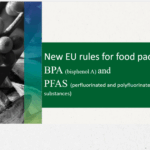Caribbean: Focus on Suriname and Trinidad & Tobago
- 07/12/2023
- Posted by: Sandra Borma
- Category: News

The Fit for Market Plus (FFM+) programme was launched in the Caribbean Region in May 2022 (webinar) and in November 2022 through local workshops. As a result, 41 requests for support have been received to date, with 10 coming from Suriname and 17 from Trinidad and Tobago. This marks the initiation of numerous upcoming development projects.
Overall, the actions planned by COLEAD through FFM+ and implemented partnerships in the region are complementary and integrated into projects aimed at facilitating better market access for Caribbean fruits and vegetables, and the goal of implementing sustainable practices. COLEAD continues to highlight changes in market access conditions affecting fresh product exports to the EU, identifying areas where both public and private actors need to take action, notably through its AGRINFO programme.
FOCUS ON SURINAME:
Following the completion of the R-SAT exercise in 2022, the implementation of the action plan developed and signed with Plantenbescherming & Kwaliteitskeuringen (ONPV of Suriname) from the Ministry of Agriculture, Animal Husbandry, and Fisheries of Suriname remains strategically important. Despite the current positive trend and a significant decrease in figures, Suriname continues to face a high number of interceptions due to the presence of quarantine organisms in shipments, remaining prominently listed in the countries at risk for trade according to the EU. An encouraging sign is that no notifications from the Rapid Alert System for Food and Feed (RASFF) regarding exceeding maximum residue limits (MRL) have been received since 2019. Unfortunately, this coincides with a drastic decrease in export volumes. The primary objective of COLEAD’s action is to contribute to strengthening national SPS (Sanitary and Phytosanitary) systems and ensuring their alignment with international standards and regulations.
Specifically, with ONPV, the focus is on implementing good inspection and control practices with a priority on managing Thrips and other pests on eggplant and ethnic vegetables. This includes establishing processes and procedures to enable Suriname to regain authorization to export Bitter Melon (or Bitter Gourd, Momordica Charantia). Support is aimed at strengthening the capacity of the competent authority and private sector actors (production/exportation companies, professional organisations, consultants, etc.). Professional organisations are also targeted to enhance their abilities to provide their members with advocacy services.
Most of the contacted companies produce fresh fruits and vegetables for the local market and export (mainly to the Netherlands). Common challenges faced so far include difficulties in accessing the European market, implementing good agricultural practices in line with international standards (GLOBAL.G.A.P), logistics (cost and access), and business development and management for Micro, Small, and Medium Enterprises (MSMEs).
Lastly, COLEAD is in contact with the Polytechnic College Suriname (PTC) to improve technical content available online and establish a Learning Management System (LMS).
FOCUS ON TRINIDAD & TOBAGO:
COLEAD’s interventions in Trinidad and Tobago aim to strengthen the capacities of horticultural operators, mainly MSMEs involved in processing, and business support structures through training and coaching. Identifying and understanding the concrete problems they face regarding their activities and their ability to access markets, whether local, regional, or international, is a priority (including regulatory and commercial compliance).
Most of the contacted companies (confectionery production, fruit processing units, plant-based ice cream production, etc.) face challenges such as having a food and quality management system in line with international standards (HACCP, FSSC22000), logistical and packaging constraints (cost and access), difficulties in accessing the market, and business development for MSMEs or improving food processing technologies.
Ongoing exchanges with ExporTT (Trinidad and Tobago’s national export facilitation organisation) should facilitate information sharing and potential synergies with the current Traditional Sweets Initiative (TSI) programme and the “Fit for Europe” programme. A recent meeting with the Caribbean Industrial Research Institute (CARIRI), which provides services such as ISO 17025 accredited laboratory tests and analyses, research, entrepreneurship, or ICT consulting, calls for collaborations on topics such as superfoods and facilitating farmers’ access to new technologies (degradation of organophosphates in the soil, for example).
This activity is supported by the Fit For Market Plus (FFM+) programme, implemented by COLEAD within the Framework of Development Cooperation between the Organisation of African, Caribbean and Pacific States (OACPS) and the European Union. This publication receives financial support from the European Union and the OACPS. The content of this publication is the sole responsibility of COLEAD and can in no way be taken to reflect the views of the European Union or the OACPS





